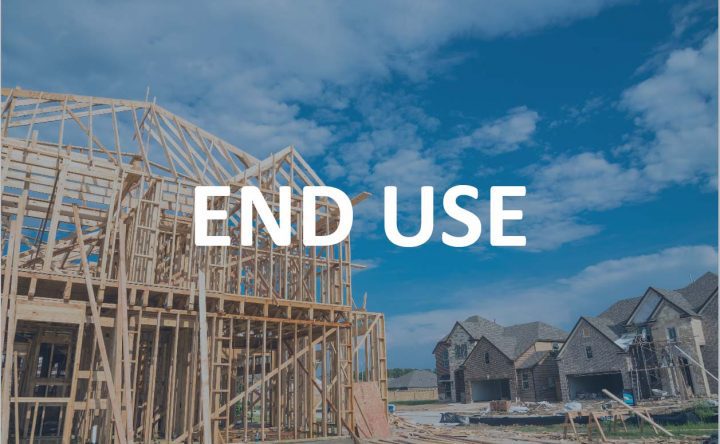According to the Canadian Mortgage and Housing Corporation (CMHC), the trend in housing starts was 267,365 units in November, up from 264,583 units in October. This trend measures a six-month moving average of the monthly seasonally adjusted rates of housing starts in Canada. The standalone monthly SAAR of housing starts for all areas in Canada was 301,279 units in November, an increase of 26% from 238,366 units in October.
News in end use
Builder Sentiment Ends Year on a High Note
On Wednesday (12-15-21), The National Association of Home Builders (NAHB)/Wells Fargo Housing Market Index (HMI) reported that builder sentiment in the market for newly built single-family homes edged 1-point higher in December to a reading of 84. This marks the fourth consecutive upward movement in the HMI and ties year’s highest reading (February).
Freddie Mac Confirms Immediate Mortgage Relief Options for Homeowners Affected by the Tornado Outbreaks
Freddie Mac on Tuesday (12-14-21) confirmed that immediate mortgage relief options for homeowners affected by the tornado outbreaks in Kentucky and surrounding areas last weekend. The disaster relief options are available to homeowners whose homes or places of employment are located in presidentially declared Major Disaster Areas where federal individual-assistance programs are made available to affected individuals and households.
Canadian Consumer Price Index Up Month-Over-Month and Year-Over-Year in November
Statistics Canada (StatsCan) released today (12-15-21) the Canadian Consumer Price Index (CPI) for November. The CPI rose 4.7% on a year-over-year basis in November, matching the increase in October. Excluding gasoline, the CPI rose 3.6% year over year. On a monthly basis, the CPI edged up 0.2% in November, following a 0.7% increase in October.
Mortgage Applications Decline in Week Ending December 10, 2021
According to data from the Mortgage Bankers Association’s (MBA) Weekly Mortgage Application Survey (WMAS), for the week ending December 10, 2021, the Market Composite Index (a measure of mortgage loan application volume) decreased -4% percent on a seasonally adjusted basis from one week earlier. On an unadjusted basis, the Index decreased -6% compared with the previous week.
Home Price Growth to Slow in 2022, According to Realtor.com
According to economists for Realtor.com, a real estate listing site owned by News Corp., the run-on home prices is almost over. Realtor.com is forecasting that over the next 12-months the median existing home sales prices will rise 2.9%. That would be a substantial slowing, as U.S. home prices year-over-year in September were up 19.5%.
Canada’s Industrial Products Price Index Up 0.8% Month-Over-Month and 18.3% Year-Over-Year in November
Statistics Canada (StatsCan) today (12-14-21) released its Industrial Products Price Index (IPPI) for November 2021. According to the “flash estimate,” the IPPI increased 0.8% month-over-month in November. Year-over-year the IPPI was up 18.3%. Softwood lumber rose 5.3% in November, after an increase of 13.3% in October. Year over year, prices for softwood lumber were up 21.8%.
Producer Price Index for Final Demand Increases 0.8% in November
The Bureau of Labor Statistics (BLS) reported today (12-14-21) that the Producer Price Index (PPI) for final demand, seasonally adjusted, increased 0.8% in November. Final demand prices moved 0.6% higher in each of the 3 prior months. On an unadjusted basis, the final demand index rose 9.6% for the 12 months ended in November — the largest advance since 12-month data were first calculated in November 2010.
NFIB’s Small Business Optimism Index Declines Further in November
The National Federation of Independent Business (NFIB), one of the largest small business associations in the US, reported today (12-14-21) that their NFIB Small Business Optimism Index dropped -0.2 points to a reading of 98.4 in November. Four of the 10 components improved, while 4 declined and 2 remained unchanged. The NFIB Uncertainty Index dropped -4 points to a reading of 63.
Federal Reserve’s “Flow of Funds” Reports Largest Post-Great Recession Quarterly Increase in Q3 2021
According to the latest from the Federal Reserve’s Z.1 Financial Accounts of the United States, i.e., the “Flow of Funds”, the aggregate value of all home mortgages of households and nonprofit organizations in the United States in the Q3 of 2021 registered the largest post-Great Recession numerical quarterly increase. From $11.3 trillion in Q2 of 2021, household liabilities rose by $230 billion to $11.5 trillion.



